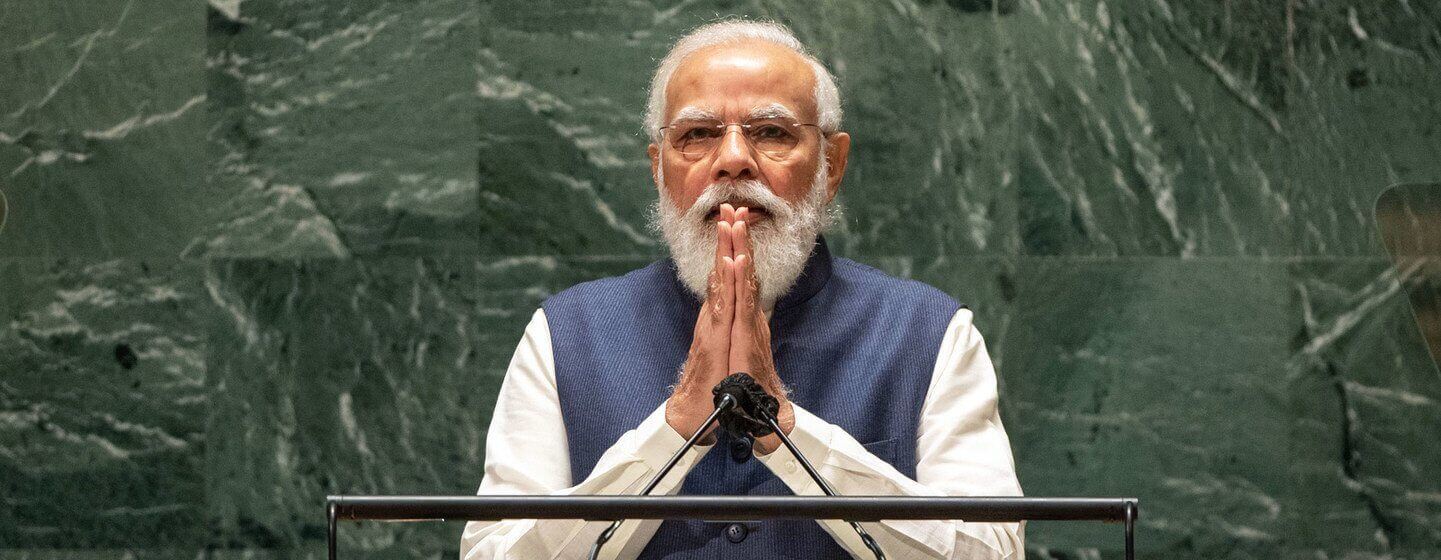Over the past five months, India’s voting behaviour at the United Nations (UN) has caught global attention. At first glance, its decision to consistently abstain from condemning the Russian invasion of Ukraine has put it at odds with its Western allies. In fact, several Western commentators have argued that India’s non-committal stance undermines international law and indeed New Delhi’s ambitions to emerge as a new superpower, particularly in multilateral institutions.
However, by siding with neither Russia nor the West, India has in fact positioned itself as a unique and valuable mediator. In fact, this is not the first time India has sought to take the middle ground. For instance, during the Korean war, India is said to have played a critical “constraining role” as Chinese troops marched into the Korean Peninsula in support of North Korea.
Therefore, simply interpreting India’s recent voting record as an aberration neglects the historical basis for such decision-making and also reflects a misunderstanding of how India is strategising its ascent to a permanent seat in the UN Security Council (UNSC). In fact, upon closer inspection, it becomes clear that India’s decision not to vote in tandem with the West on UN resolutions and not mirror United States (US)-led sanctions against Russia could actually have strengthened its ability to achieve this goal.
India has previously been offered a permanent UNSC seat by the US and the Soviet Union, though it rejected both offers. In particular, the country’s first prime minister, Jawaharlal Nehru, was concerned about the ramifications it could have in its immediate neighbourhood, with the US proposal entailing a replacement of China with India. Nehru said, “That would be bad from every point of view. It would be a clear affront to China and it would mean some kind of a break between us and China. I suppose the state department would not like that, but we have no intention of following that course…India because of many factors, is certainly entitled to a permanent seat in the security council. But we are not going in at the cost of China.”
The situation has many parallels with the current security environment, which has complicated ties with the US. In fact, US President Joe Biden has spoken out against India’s “shaky” response to the war, while other White House officials have even gone as far as to warn of sanctions. This approach, however, has yielded not only heavily discounted oil from Russia but also an admission from both Moscow and Kyiv that New Delhi could play the role of a mediator.
Moreover, India has in recent times enjoyed a certain level of immunity from punitive measures and isolation in a way that other states that fall foul of Western sanctions have not, giving it a coat of protection when its behaviour contradicts international norms. For instance, while both China and Turkey were sanctioned after purchasing Russia’s S-400 surface-to-air missile system, India did not meet the same fate. Instead, the US Congress amended its Countering America’s Adversaries Through Sanctions Act (CAASTA) to grant a waiver to India.
Such exceptions are driven in great part by India’s ability to reach across the diplomatic aisle, given that it enjoys membership in both eastern and western alliances: the Brazil-Russia-India China-South Africa (BRICS) grouping, the Russia-India-China cluster (RIC), the Shanghai Cooperation Organization (SCO), and the Quad (comprising the US, India, Japan, and Australia).
These groupings and the evolution of the global geopolitical landscape have pushed the majority of the current permanent members of the UNSC, the P5, to acknowledge the need for reform. In fact, the US, the United Kingdom, France, and Russia have all put their weight behind India’s bid for a permanent seat.
Although China’s approval has remained a sticking point for years, a slight de-escalation at the Line of Actual Control, China’s indispensability to the Indian economy, and continued engagement via BRICS as well as the RIC point to avenues via which India can potentially seek to change the status quo. India has also carefully avoided wading in on the brewing Taiwan crisis so far, while China has backed India’s decision to temporarily suspend wheat exports.
Ultimately, the current global security situation is a clear indication that Cold War politics and alliances continue to dominate India’s modern-day considerations. Moreover, New Delhi’s historic strategy of operating outside of the confines of great power politics is in fact what has strengthened its diplomatic and strategic footprint amid the ongoing Ukraine war. By abstaining from sanctioning Russia while also providing humanitarian assistance to Ukraine, India has effectively emerged as a unique and trustworthy channel of communication between the Western nations and Russia. Moreover, the fact that it has escaped any sort of punitive measures for deepening trade ties with Russia beyond mild warnings illustrates not only the muscularity of Indian diplomacy but also the fact that countries across the globe have acknowledged the critical and unique role India can play in international relations. New Delhi’s deepening desire is thus seemingly matched by an equal interest by international actors, particularly within the UNSC, in granting India the kind of irrevocable status it has been chasing for decades.
Delhi’s Deepening Desire: The Russo-Ukraine War & India’s Quest for a Permanent UNSC Seat
India’s refusal to outright condemn Russia’s invasion of Ukraine has drawn both concern and criticism. However, its decision requires a closer inspection of its long-standing foreign policy goals.
August 16, 2022

Indian PM Narendra Modi IMAGE SOURCE: CIA PAK/UN PHOTO
